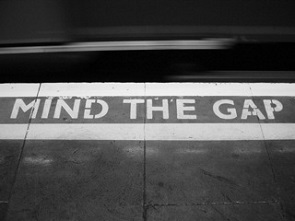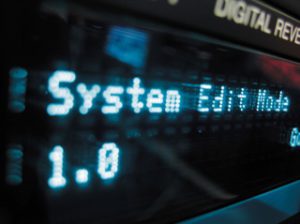At the last EFIB, October 2017, in Brussels, there were indications that national bio-economy strategies are beginning to lag behind market developments and vision. Current company bio-based strategies move towards a circular economy, and go beyond just low carbon and clean energy sustainability. And the views expressed by the UN Environment Programme and the European Commission emphasize the major role bio-economy has to play in an economic model change. In contrast, most of the eight national bio-economy strategies presented during EFIB, including the strategy of the Bio-based Industries Joint Undertaking, seemed to be lagging behind by only regarding their nascent bio-economy primarily in relation to a mix of sustainability and national economic benefits.

Corporate bio-economy strategies more advanced than national policies
By meeting customer needs, companies readily adjust to future challenges. Companies have resource management in mind and, directly or indirectly, support programmes like the UN Global Sustainable Development Goals (SDGs). Examples mentioned at EFIB involved French automotive company Renault stating improved vehicle durability and vehicle weight reduction by applying bio-based materials. l’Oreal referred to its strategy for packaging material: re-use and recycle, replace and reduce. They also mentioned the Bio-speed Consortium, founded last spring, in which they participate with, amongst others, Michelin and Lego. The objective of this consortium is to speed up market uptake of advanced, next generation, bio-based materials, thus supporting a bio-based economy. And PepsiCo and Danimer Scientific explained how they cooperate to develop biodegradable polyhydroxyalkanoate (PHA) packaging for consumer snacks. For PepsiCo, named by Ethisphere as one of World’s Most Ethical Companies, this cooperation is typical for their ‘Performance-with-Purpose’-agenda: ‘…we did not simply ask ourselves how we could do more. We asked ourselves how we could do enough … Our hope is to contribute solutions to shared challenges.’
In the national bio-economy strategies, the intended sustainability benefits of the bio-economy were only barely worked out, whereas the pursued national economic goals were emphasized. Only the Irish and the Finns went beyond economics by mentioning their focus on resource efficiency, sustainable exploitation of natural resources and improvement of water quality: ‘…using better what we already use, using well what we don’t use yet…’. The Canadian bio-economy strategy mentioned the challenge of feeding the planet in view of climate change and less land and water being available. And the BBI JU mentioned reducing the import of proteins as well as phosphate and potassium for fertilisers. But in general, the economic view dominated these national strategies.
UNEP International Resource Panel emphasizes economic model change and improved resource management
Corporate strategies correspond with some views mentioned in a recent report on resource management by the UNEP International Resource Panel (IRP), that shows how resource efficiency can lead to higher economic growth and employment, if supported by well-designed policies. With regards to a bio-based economy, the findings of this report were explained by Janez Potočnik, co-chair IRP. He underlined that a bio-economy can only address future challenges as long as sustainability criteria are respected. But sustainability alone will not be sufficient to address the wide range of environmental and social challenges we now face. Potočnik elaborated on the necessity of the bio-economy being in line with both decoupling economic activities and circular economy principles, thus supporting an economic model transformation. This last issue is seen as inevitable by IRP.

According to Potočnik our current economic model is no longer appropriate in view of future needs. The model incorporates economic, social and environmental imbalances by over valuating financial capital, while under valuating human capital and not valuing natural capital at all. He also warns that in the mid-term, resource shortages will not be the limiting factor of our economic development but rather the environmental consequences of excessive and irresponsible use of resources. In relation to bio-economic developments, Potočnik further stressed that 12 out of the 17 Global Goals for Sustainable Development directly relate to natural resources. But while companies support SDGs while making the transition to a bio-economical routine, none of the national bio-economy strategies even mentions the significance of Sustainable Development Goals for achieving a feasible bio-economy.
A bio-economy needs a transformed economic model
Potočnik also emphasized the role of the bio-economy in relation to, in his view inevitable, economic model transformation. An important issue is the need to decouple economic activities, such as decoupling the impact of economic activity on the environment or decoupling resource use from growth of GDP. According to the IRP-report, with every 10% increase in gross domestic product, the average national material footprint increases by 6%. IRP stressed that circular economy principles are one of the principles essential to decoupling economic activities, and thus a bio-based economy also needs to satisfy circular economy principles.
Whereas companies quite regularly elaborated on their strategies with regard to the after-use of their products, the need to comply with circular economy principles wasn’t mentioned by national bio-economy strategies, apart from the occasional remark. Even waste flows, when mentioned, were only regarded as useful, economically valuable material resources and not viewed as a crucial future resource. This last issue was discussed by Daniel Calleja Crespo, the director-general of DG Environment, and responsible for EU environmental policy. He gave an update on the progress of the circular economy package, which was adopted in December 2016. Also Calleja Crespo emphasized the importance of a transition away from current economic models of creation, consumption and disposal. He mentioned the role a bio-economy can play in this transition, and drew attention to measures within the Commission’s circular economy action plan that support the bio-economy. For instance, the Commission is promoting the separate collection of bio-waste, and is setting conditions for the development of an EU-wide market for fertilisers made from recycled nutrients.
Potočnik remarked that, as markets show rational behaviour, market forces tend to bring about relative decoupling of priced resources over time. Nonetheless, as impacts are often unpriced and external to market activities, public policy and political will are required to achieve the absolute decoupling of resource use and efficiency, or of any kind of environmental impacts. He concludes that leadership and improved global governance are required to achieve system change in a world that is facing the emergence of a single and tightly coupled human social-economical system. He cites the article ‘The Dawn of the System Leadership’, that mentions three core capabilities that system leaders should develop: helping people see and understand the larger system, fostering reflection, and shifting the collective focus from reactive problem solving to co-creating the future.
Jyrki Katainen, European Commission Vice-President responsible for jobs, growth, investment and competitiveness, moved somewhat in that direction when, after elaborating in his keynote on the need of innovation and financial investments in a bio-economy, he answered a final question from the audience by stressing the need to invest in teacher education in Europe.
Interesting? Then also read:
Biobased economy strategy: through speciality chemicals and materials
System changes that will propel sustainable energy
Ecomodernism, a great idea and a big disappointment
